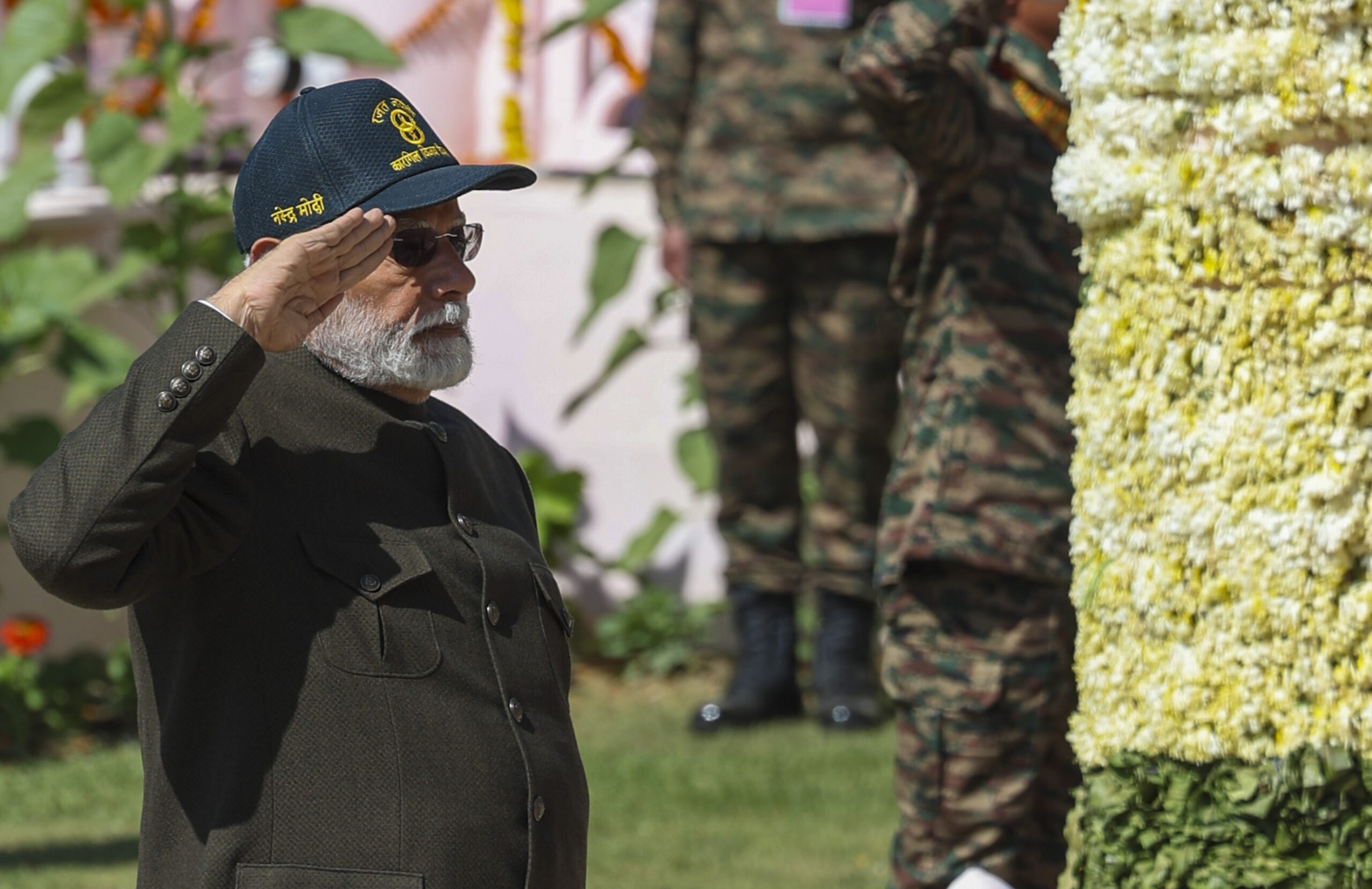- Sunday, April 27, 2025
India has, for decades, accused Pakistan of aiding and abetting Islamist militants fighting in Jammu and Kashmir

By: Shajil Kumar
INDIAN prime minister Narendra Modi said on Friday that Pakistan is trying to stay relevant through “terrorism” and “proxy war” but its “unholy plans” will never succeed.
The nuclear-armed South Asian neighbours share an uneasy relationship and India has, for decades, accused Pakistan of backing Islamist militants fighting its rule in Jammu and Kashmir.
Pakistan denies the accusations, saying it only provides diplomatic and moral support to Kashmiris seeking self-determination in the Muslim-majority region.
Modi’s comments came at an event to mark the 25th anniversary of India’s short military conflict with Pakistan in the Himalayan region of Kargil. The arch-rivals have also fought three wars, two of them over Kashmir.
They also come in the aftermath of a spate of militant attacks in the Hindu-majority Jammu region of Jammu and Kashmir – as the territory is formally called – with almost a dozen Indian soldiers killed this year.
Modi said Pakistan was humiliated whenever it tried to further its plans but had “not learned anything from its history”.
“I want to tell these patrons of terrorism that their unholy plans will never be successful…Our brave (forces) will squash terrorism, the enemy will be given a befitting reply,” he said.
Pakistan’s foreign ministry did not respond immediately to a request for comment.
India-Pakistan relations have been largely frozen as the two countries downgraded their diplomatic ties in tit-for-tat moves in August 2019 after New Delhi scrapped Kashmir’s special status and split it into two federally administered territories.
Ties were further strained after a suicide bombing of an Indian military convoy in Kashmir was traced to Pakistan-based militants, prompting India to carry out an airstrike on what it said was a militant base in Pakistan.
Earlier this year, Pakistan said there was credible evidence linking Indian agents to the killing of people on its soil – accusations that India termed “fake”.
Indian Foreign Minister Subrahmanyam Jaishankar said last month that India would look for a solution to cross-border terrorism, which “cannot be the policy of a good neighbour”.
Martyrs remembered
Indian soldiers and top brass gathered Friday in the remote Himalayan foothills of Dras to commemorate a battle fondly remembered among compatriots for imposing a humiliating military defeat on Pakistan.
The 1999 Kargil conflict was the last major battle between the two arch rivals, who have fought numerous wars since their partition into two nations upon independence from British colonial rule.
It came just a year after tit-for-tat atomic weapons tests by the neighbours and spurred international alarm that the confrontation risked tipping into all-out nuclear war.
Friday’s ceremony marked the 25th anniversary of the conflict’s end, when sustained diplomatic pressure from Washington and elsewhere forced Pakistan’s withdrawal.
The high-altitude confrontation being commemorated began when Pakistan-backed militants crossed into Indian territory at Kargil, a remote outpost on the countries’ shared frontier.
At least 1,000 people were killed over the following 10 weeks, but the conflict ended with no changes to the status quo along the border.
Pakistan withdrew after severe pressure from Washington, which was alarmed by intelligence reports showing Islamabad had deployed part of its nuclear arsenal nearer to the conflict.
The aftermath roiled Pakistan’s establishment, with then-prime minister Nawaz Sharif blaming his army chief Pervez Musharaf for igniting the conflict without his knowledge or approval.
Months later, Musharaf overthrew Sharif in a coup in one of the Pakistani military’s periodic political interventions.
Kargil is feted as one of India’s greatest military triumphs over its perennial foe.
“We are stronger economically, military-wise and technologically,” general Ved Prakash Malik, India’s army chief at the time of the conflict, told AFP.
“They have to realise the difference that has come about the way they are being ruled by the army and the way we are being ruled as a democracy.”
Asked about the likelihood of a conflict similar to the Kargil confrontation in the future, Malik said Pakistan would not “dare to try that again”. (Agencies)